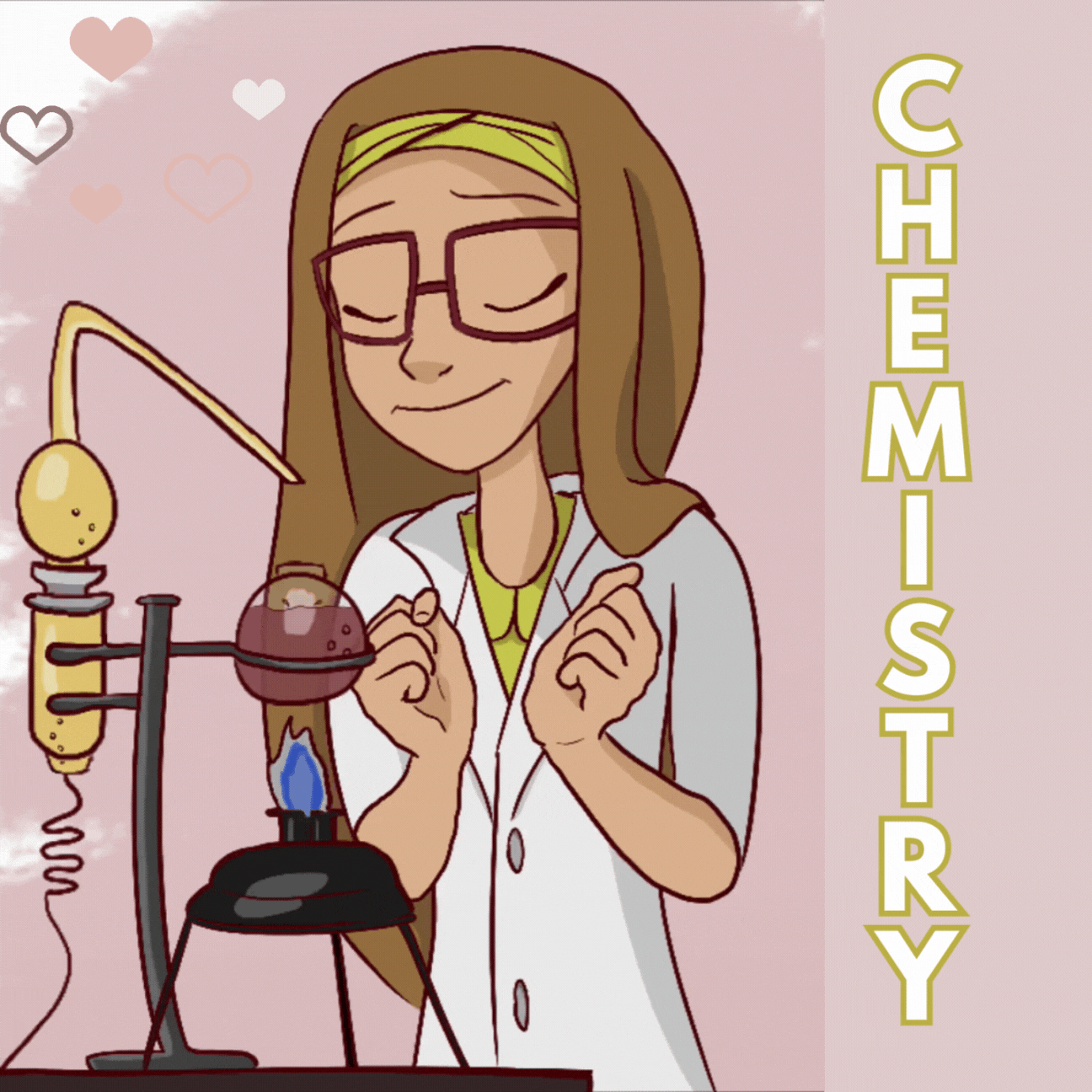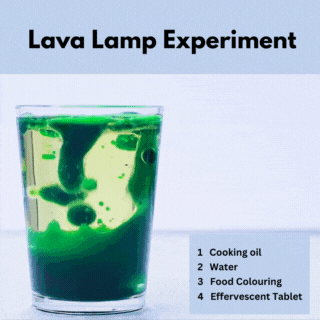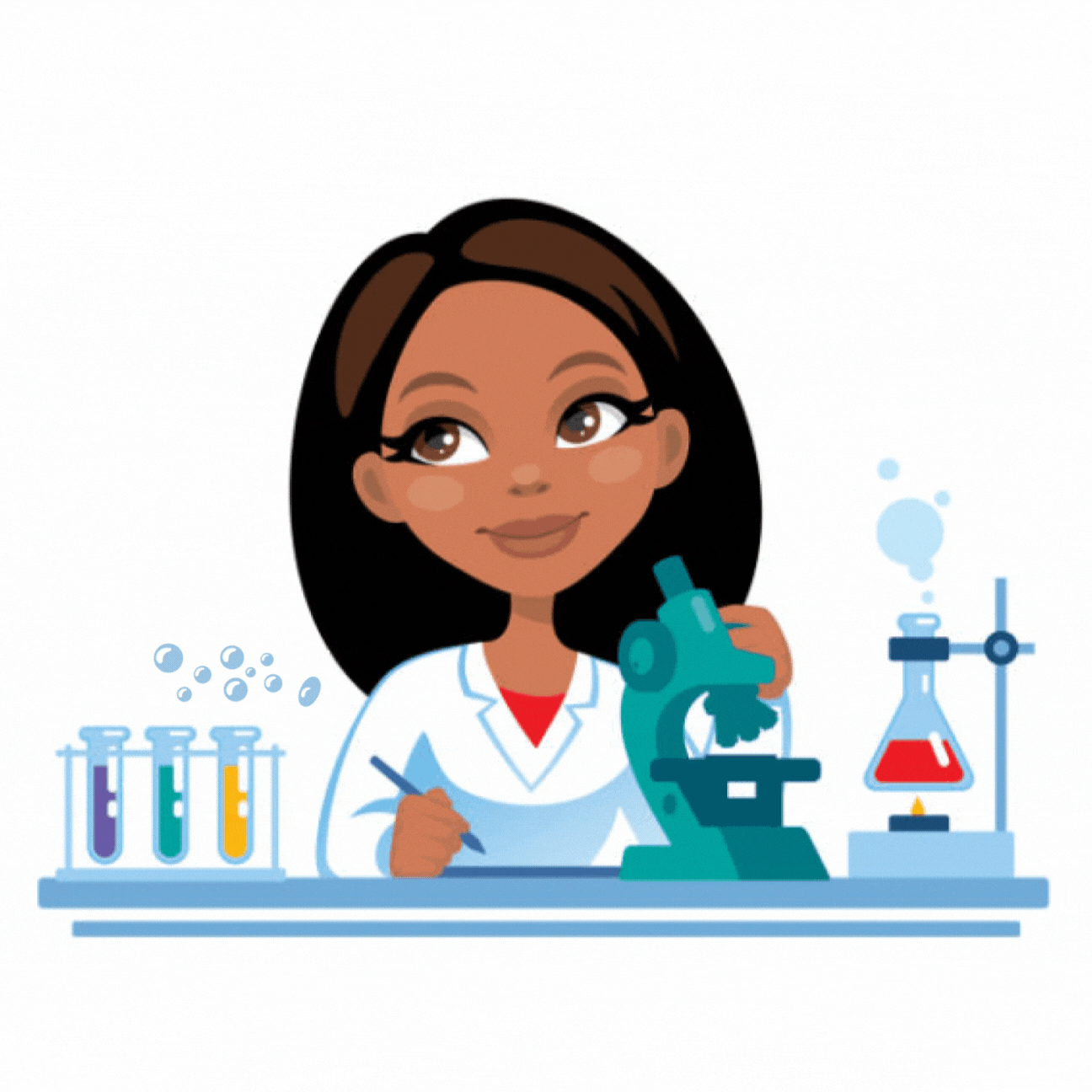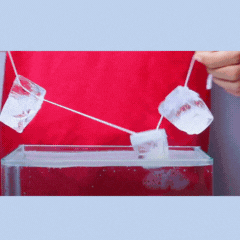
CHEMISTRY
WHAT IS CHEMISTRY?
Chemistry is a field in science that that helps us understand how different substances behave and interact with each other.
Everything around us is made up of tiny particles called atoms. Chemistry teaches us about these atoms and how they join together to form different materials. Atoms are the tiny building blocks that make up everything in the world around us. They are so small that you can't see them with your eyes, but they are incredibly important in understanding how things work.
Chemistry is all around us. It is present in the air we breathe, the water we drink, the food we eat, and the materials we use. It helps us understand the structure of different substances, how they react with each other, and how they can be transformed into new substances.

WHY STUDY CHEMISTRY?
Studying chemistry is like being a scientist magician! Chemistry encourages us to ask why and how things happen and to make observations and experiments to find out more. It allows us to understand the amazing things that happen when different substances mix and react with each other. It also helps us understand how things burn, why some things dissolve in water, and how bubbles and fizz are made. We can even explore the properties of gases, liquids, and solids, and see how they can change when we heat them or cool them down.
By studying chemistry, we can learn how different materials are made, what makes them change, and how they can be useful to us. We can discover how to create new materials, like the plastic in our toys or the medicines that help us feel better when we're sick.
Chemistry can be lots of fun! It allows us to mix colorful liquids, create tiny explosions (safely, of course!), and watch amazing reactions unfold right before our eyes.
Here are a few examples of how you can explore and have fun with chemistry:
-
Kitchen Chemistry: Head to the kitchen and conduct simple experiments using ingredients you can find at home. For example, mix baking soda and vinegar to create a fizzy reaction, or observe how different ingredients like salt or sugar dissolve in water. You can also try making homemade slime using glue and a solution of borax. To the left are some videos of some activities you can do.
-
Chemical Reactions: Explore the world of chemical reactions by mixing different substances and observing the changes that occur. For instance, mix lemon juice with baking soda and watch it bubble and fizz. Remember to do these experiments under adult supervision and follow safety guidelines.
-
Crystal Growing: Grow your own crystals using common household items. Dissolve salt or sugar in warm water, let it cool, and observe as beautiful crystals form. You can also try growing crystals using Epsom salts or alum. It's like creating your own sparkling treasures!
-
Colorful Chemistry: Discover the magic of color-changing reactions. For instance, add red cabbage juice to different liquids and see how the colors change. Explore the pH scale by testing substances like lemon juice, baking soda, and vinegar with pH indicator strips. Watch as the colors transform and learn about the acidity or alkalinity of different substances.
-
Science Kits and Experiments: Look for chemistry kits designed for kids, which come with safe materials and instructions for conducting various experiments. These kits often include fun activities like creating foams, making slime, or growing crystals. They provide hands-on experience and make learning chemistry even more exciting.
-
Visit Science Museums or Centers: Plan a trip to a science museum or center with interactive exhibits on chemistry. These places often have chemistry-themed displays, hands-on experiments, and demonstrations that bring the subject to life. Explore the exhibits, engage in interactive activities, and learn from the experts.
Remember, always prioritize safety when conducting experiments, and make sure to have adult supervision.
Have fun exploring the magical world of chemistry and don't be afraid to get curious, ask questions, and unleash your inner scientist!
CHEMISTRY-RELATED ACTIVITIES

-
Cooking Oil
-
Water
-
Food Coloring
-
Effervescent
Tablet
LAVA LAMP EXPERIMENT

M&M EXPERIMENT



ICE & SALT EXPERIMENT
-
Container
-
Salt
-
Water / Ice
-
String
